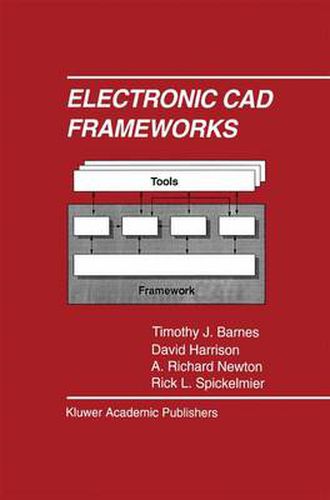Readings Newsletter
Become a Readings Member to make your shopping experience even easier.
Sign in or sign up for free!
You’re not far away from qualifying for FREE standard shipping within Australia
You’ve qualified for FREE standard shipping within Australia
The cart is loading…






This title is printed to order. This book may have been self-published. If so, we cannot guarantee the quality of the content. In the main most books will have gone through the editing process however some may not. We therefore suggest that you be aware of this before ordering this book. If in doubt check either the author or publisher’s details as we are unable to accept any returns unless they are faulty. Please contact us if you have any questions.
When it comes to frameworks, the familiar story of the elephant and the six blind philosophers seems to apply. As each philoso pher encountered a separate part of the elephant, each pronounced his considered, but flawed judgement. One blind philosopher felt a leg and thought it a tree. Another felt the tail and thought he held a rope. Another felt the elephant’s flank and thought he stood before a wall. We’re supposed to learn about snap judgements from this alle gory, but its author might well have been describing design automation frameworks. For in the reality of today’s product development requirements, a framework must be many things to many people. xiv CAD Frameworks: Integration Technology for CAD As the authors of this book note, framework design is an optimi zation problem. Somehow, it has to be both a superior rope for one and a tremendous tree for another. Somehow it needs to provide a standard environment for exploiting the full potential of computer-aided engineering tools. And, somehow, it has to make real such abstractions as interoperability and interchangeability. For years, we’ve talked about a framework as something that provides application-oriented services, just as an operating system provides system-level support. And for years, that simple statement has hid the tremendous complexity of actually providing those services.
$9.00 standard shipping within Australia
FREE standard shipping within Australia for orders over $100.00
Express & International shipping calculated at checkout
This title is printed to order. This book may have been self-published. If so, we cannot guarantee the quality of the content. In the main most books will have gone through the editing process however some may not. We therefore suggest that you be aware of this before ordering this book. If in doubt check either the author or publisher’s details as we are unable to accept any returns unless they are faulty. Please contact us if you have any questions.
When it comes to frameworks, the familiar story of the elephant and the six blind philosophers seems to apply. As each philoso pher encountered a separate part of the elephant, each pronounced his considered, but flawed judgement. One blind philosopher felt a leg and thought it a tree. Another felt the tail and thought he held a rope. Another felt the elephant’s flank and thought he stood before a wall. We’re supposed to learn about snap judgements from this alle gory, but its author might well have been describing design automation frameworks. For in the reality of today’s product development requirements, a framework must be many things to many people. xiv CAD Frameworks: Integration Technology for CAD As the authors of this book note, framework design is an optimi zation problem. Somehow, it has to be both a superior rope for one and a tremendous tree for another. Somehow it needs to provide a standard environment for exploiting the full potential of computer-aided engineering tools. And, somehow, it has to make real such abstractions as interoperability and interchangeability. For years, we’ve talked about a framework as something that provides application-oriented services, just as an operating system provides system-level support. And for years, that simple statement has hid the tremendous complexity of actually providing those services.